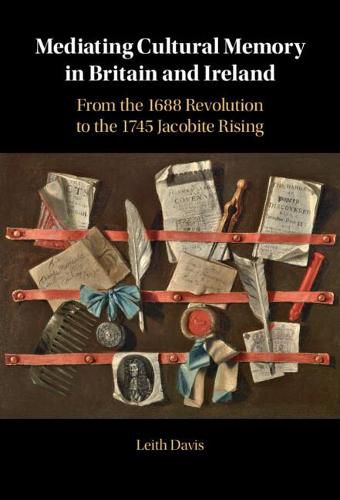Readings Newsletter
Become a Readings Member to make your shopping experience even easier.
Sign in or sign up for free!
You’re not far away from qualifying for FREE standard shipping within Australia
You’ve qualified for FREE standard shipping within Australia
The cart is loading…






Mediating Cultural Memory is the first book to analyze the relationship between cultural memory, national identity and the changing media ecology in early eighteenth-century Britain. Leith Davis focuses on five pivotal episodes in the histories of England, Scotland and Ireland: the 1688 ‘Glorious’ Revolution; the War of the Two Kings in Ireland (1688-91); the Scottish colonial enterprise in Darien (1695-1700); the 1715 Jacobite Rising; and the 1745 Jacobite Rising. She explores the initial inscription of these episodes in forms such as ballads, official documents, manuscript newsletters, correspondence, newspapers and popular histories, and examines how counter-memories of these events continued to circulate in later mediations. Bringing together Memory Studies, Book History and British Studies, Mediating Cultural Memory offers a new interpretation of the early eighteenth century as a crucial stage in the development of cultural memory and illuminates the processes of remembrance and forgetting that have shaped the nation of Britain.
$9.00 standard shipping within Australia
FREE standard shipping within Australia for orders over $100.00
Express & International shipping calculated at checkout
Mediating Cultural Memory is the first book to analyze the relationship between cultural memory, national identity and the changing media ecology in early eighteenth-century Britain. Leith Davis focuses on five pivotal episodes in the histories of England, Scotland and Ireland: the 1688 ‘Glorious’ Revolution; the War of the Two Kings in Ireland (1688-91); the Scottish colonial enterprise in Darien (1695-1700); the 1715 Jacobite Rising; and the 1745 Jacobite Rising. She explores the initial inscription of these episodes in forms such as ballads, official documents, manuscript newsletters, correspondence, newspapers and popular histories, and examines how counter-memories of these events continued to circulate in later mediations. Bringing together Memory Studies, Book History and British Studies, Mediating Cultural Memory offers a new interpretation of the early eighteenth century as a crucial stage in the development of cultural memory and illuminates the processes of remembrance and forgetting that have shaped the nation of Britain.